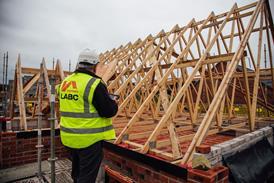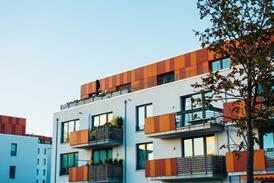Critics say Hackney council’s move to favour timber construction could hit ‘indigenous trades’

Hackney council’s proposal to use its planning system to promote timber buildings will cost construction industry jobs, critics have claimed.
Building revealed last week that the east London borough wants to become the first local authority in the country to create a “presumption in favour” of using timber following the launch of lobby group Wood for Good’s ‘wood first’ campaign.
But the Modern Masonry Alliance and the Concrete Centre have condemned the plans as ill-considered.
Modern Masonry Alliance director Mike Leonard claimed the council had ignored the effect of such a policy on “indigenous trades” such as brick and block work.
“At this time of economic crisis, our councils and public bodies should be doing what is right for UK Plc,” he said.
“Hackney has a high level of unemployment already so there seems to have been a lack of joined up thinking with this proposal. All this timber is imported.”
The Concrete Centre said that decisions on materials should be left up to “appropriate design professionals” and claimed that timber is not carbon negative in whole life terms.
Executive director Andrew Minson said: “It is not enough to just cherry pick sustainability benefits. “The total whole life sustainability of a construction material must be considered, both embodied and long-term operational – which is where the vast majority of a building’s CO2 impact lies.”
Minson added that research carried out by the Timber Research and Development Association (TRADA) showed that “the CO2 in timber construction has a significant environmental impact over its life cycle.”
However senior policy advisor at the UK Green Building Council, Jo Wheeler, gave Hackney’s approach a cautious welcome.
“We’d welcome their attempt to promote sustainable construction,” she said. “Of course sustainable timber is a great material but it is important that the policy maintains flexibility. We would not want to see a blanket policy.”
She added that there were also potential hurdles in ensuring timber was sustainable and properly certified.


























2 Readers' comments